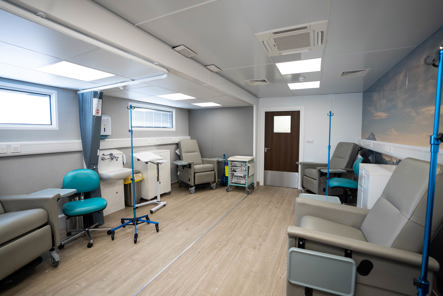Collaboration between the NHS and the independent sector is key to addressing the waiting list backlog
Jo Quarterman, EMS Healthcare’s Divisional Director of Clinical Capacity, discusses the latest NHS waiting list figures and how the independent sector can support.
 Jo Quarterman
Jo Quarterman
Published 14 March 2024
 Clinical capacity
Clinical capacity
A recent BBC News investigation has shed light on the existence of hidden waiting lists, contributing to delays for patients in England. This revelation suggests that the actual backlog exceeds the officially reported 7.6 million, as patients in need of ongoing care, even if experiencing significant delays, are not automatically included in official figures.
In addition, a recent report from the Institute for Fiscal Studies (IFS) the past and future of NHS waiting lists in England, underscores that, while the NHS waiting list is expected to consistently decrease in 2024, it will persist at levels higher than those before the onset of COVID-19 until 2030.
The study also revealed that:
- The elective waiting list grew rapidly during the pandemic, subsequently peaking at 7.8 million in September 2023
- The elective waiting list has risen in every region and area of England, but there are large differences in the extent of the increase. Compared with January 2020, the waiting list in December 2023 was 113% higher in the East of England, but it was 71% higher in the North East & Yorkshire
- In September 2023, 26% of cancer patients waited longer than two weeks from a GP urgent referral to their first consultant appointment; compared with 8% in December 2019 and 4% in December 2009
Commenting on the IFS report, Director of the NHS Confederation’s Acute Network, Rory Deighton, said “We need to be realistic that it will take some years, and significant amounts of capital investment, to start to turn the corner. But we should also take heart that where there is investment, the impact for staff, patients and waiting lists can be significant.”
Working together to create better health outcomes
The independent sector has capacity solutions that could make an impact on patient outcomes and support with the NHS’ greatest challenges:
Capacity expansion:
Mobile clinics can create extra space within hospital estates or deliver services directly to the community, enhancing healthcare accessibility. NHS England reported that during 2021/2022, nearly 7.5 million outpatient appointments were missed, frequently associated with health inequalities. By increasing the number of appointments and improving access, waiting lists could reduce at a much faster rate.
Staffing support:
Recruitment and retention of staff within the health sector is a continued challenge. Private healthcare providers can assist the NHS during times of increased demand or staffing shortages. Additionally, they can staff mobile healthcare facilities, offering a full-service solution.
Education initiatives:
Taking public health awareness into communities can educate the public to support with detecting health issues earlier or reduce illness by living a healthier life.
Innovative solutions that support with capacity challenges
Kidderminster Hospital was one of the first early adopter sites to roll out a CDC. Their mobile community diagnostic centre supported with endoscopy diagnostics and saw 3,000 additional patients in the first 3 months. The mobile solution proved so effective that they extended for an additional 12 months.
Dr Carl Ellson, Medical Director for NHS Herefordshire and Worcestershire, said “our priority is to address the waiting lists that have grown during the pandemic and to use the additional capacity at the CDCs to ensure patients can get the investigations they require in a timely manner and meet growing demand for diagnostic tests in the future.”
Changing the lives of patients with cancer
EMS Healthcare are working with LloydsPharmacy Clinical Homecare to provide a mobile treatment suite for Royal Surrey NHS Foundation Trust for 5 years.

The unit is conveniently located within accessible locations across Surrey, maintaining continuity of care, closer to the homes of patients with cancer.
With appointments for chemotherapy and immunotherapy in community locations, patients’ lives don't have to revolve around appointments and their diagnosis.
- 98% of patients found parking at the mobile unit site convenient
- 90% of patients now travel less than 20 miles for treatment
- 91% of patients start treatment within 10 minutes of arrival
Collaborating to offer a full-service solution
As a trusted partner of the NHS, we provide hospitals and communities with additional clinical space whenever and wherever they need it. Our mobile clinical units play a significant role in relieving pressure on NHS hospitals by providing extra clinical space suitable for a range of modalities:
- Decontamination
- Endoscopy
- Infusion
- Ophthalmology
- Renal dialysis
- Same day emergency care
- Outpatient clinics
- Vaccinations
- Community engagement
By partnering with other healthcare providers within the independent sector, we can maximise how we support the NHS with some of their biggest challenges. From staffing to equipment, our fleet of mobile medical units can help to reduce waiting times, boost capacity and deliver financial efficiencies.
To learn more about the solutions we have available, please get in touch with the team.